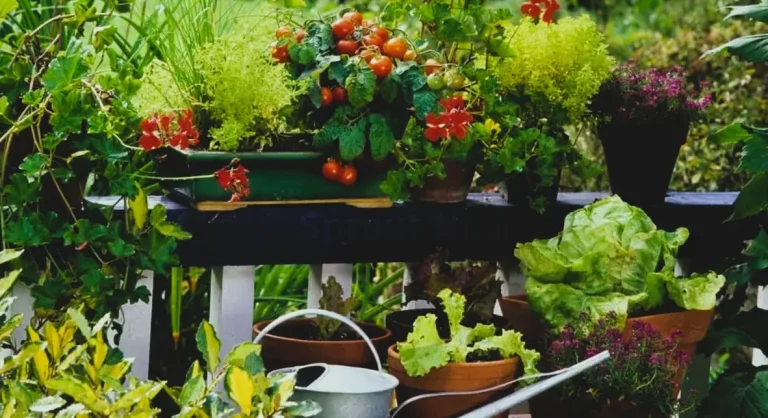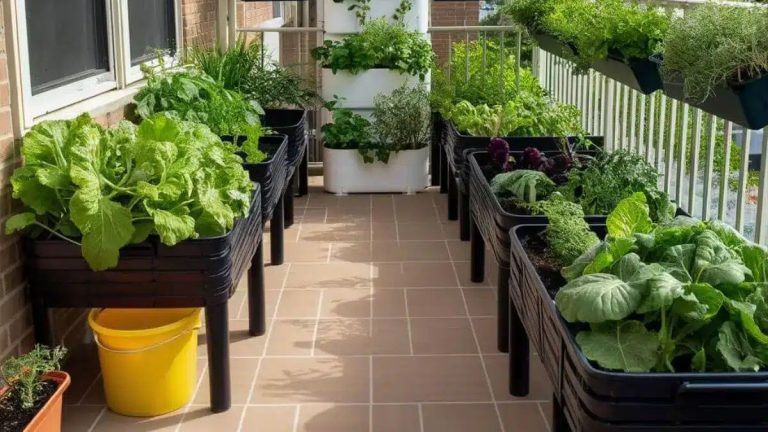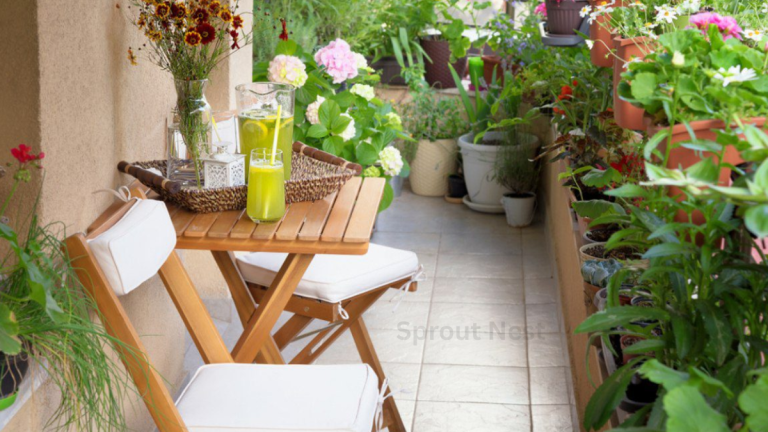Creating a vegetable garden on your balcony is one of the most rewarding things you can do with limited space. As a gardening expert who has helped dozens of urban growers set up balcony veg patches, I can assure you—you don’t need a backyard to grow your own food.
1. Choose the Right Spot
Vegetables love sunlight.
☀️ Ensure your balcony gets at least 4–6 hours of direct sunlight.
North-facing balconies (in the UK) may struggle, while south or west-facing ones are ideal.
No full sun? Don’t worry—you can still grow leafy greens like lettuce, spinach, and rocket, which thrive in partial shade.
2. Pick Suitable Vegetables
Not all veg are balcony-friendly.
Here are beginner favourites:
- Cherry tomatoes (compact varieties)
- Chillies and peppers
- Lettuce, spinach, kale
- Radishes, carrots (short-rooted types)
- Spring onions, herbs (basil, mint, coriander)
These crops grow well in containers and don’t need deep soil.
3. Use Proper Containers
For most vegetables:
- Depth of 8–12 inches is enough
- Use terracotta, plastic, or grow bags
- Ensure drainage holes to prevent root rot
Larger crops like tomatoes or courgettes need sturdy pots and support stakes.
4. Quality Soil is Key
Use peat-free compost mixed with perlite or coco coir for good drainage.
Add organic fertiliser or compost every few weeks to keep the soil nutrient-rich.
From my own tests, compost made for vegetables usually delivers better yields than generic mixes.
5. Water Consistently
Balcony pots dry out fast—especially in summer.
Water once daily during hot months, and less during cooler times.
Use mulch (like straw or dry leaves) to reduce evaporation.
If you’re away often, consider self-watering pots or a simple drip irrigation kit.
6. Protect from Wind and Pests
Strong winds can damage plants and dry out soil.
Use a screen or trellis as a windbreak.
Watch for aphids and slugs—neem oil or garlic spray can help naturally.
Raised railings also make a difference—keep heavy pots lower down to avoid toppling.
7. Harvest Regularly
Pick leaves, herbs, and fruits often.
This encourages more growth and keeps the plant productive.
Don’t wait too long—overripe vegetables can spoil or attract pests.
Final Thought
A well-planned balcony vegetable garden isn’t just about growing food—it’s about creating a space where you can reconnect with nature, even in a busy city. With the right containers, good sunlight, and consistent care, you’ll be surprised at how much you can harvest from just a few square feet.
Take it from a seasoned grower: start small, stay consistent, and your balcony will become a fresh food paradise.




